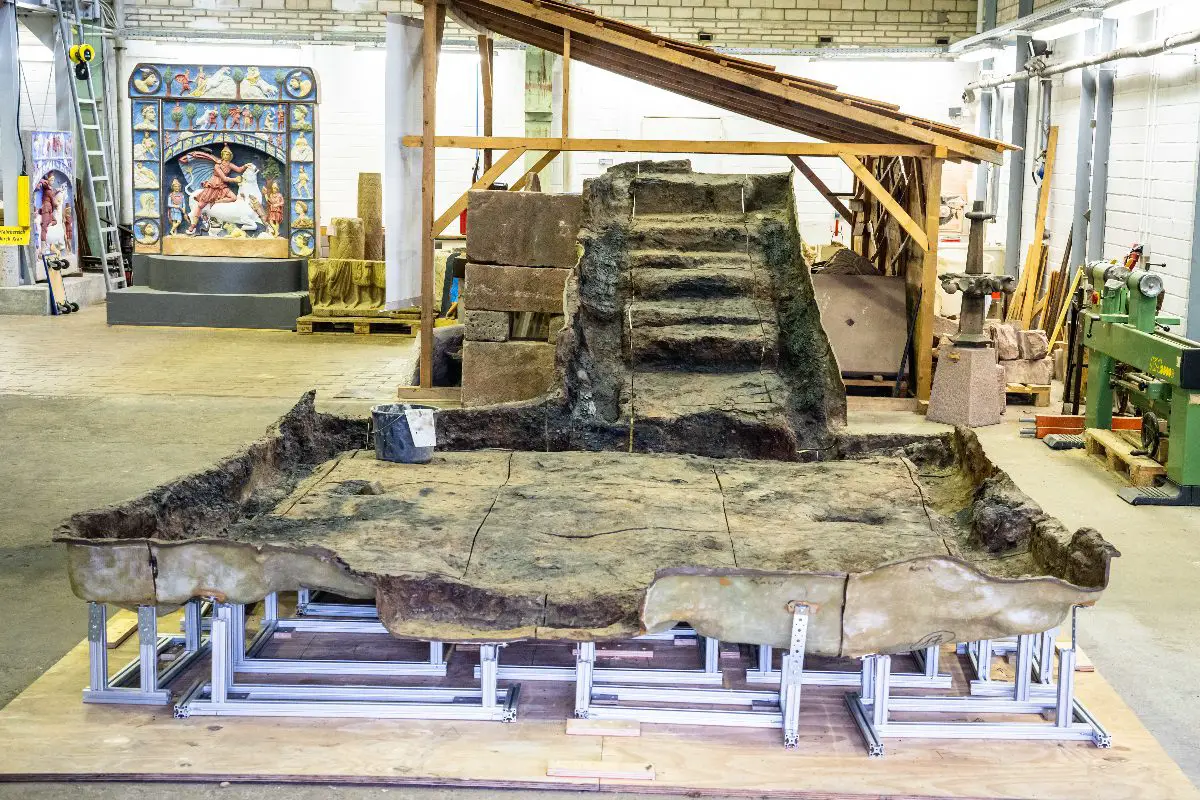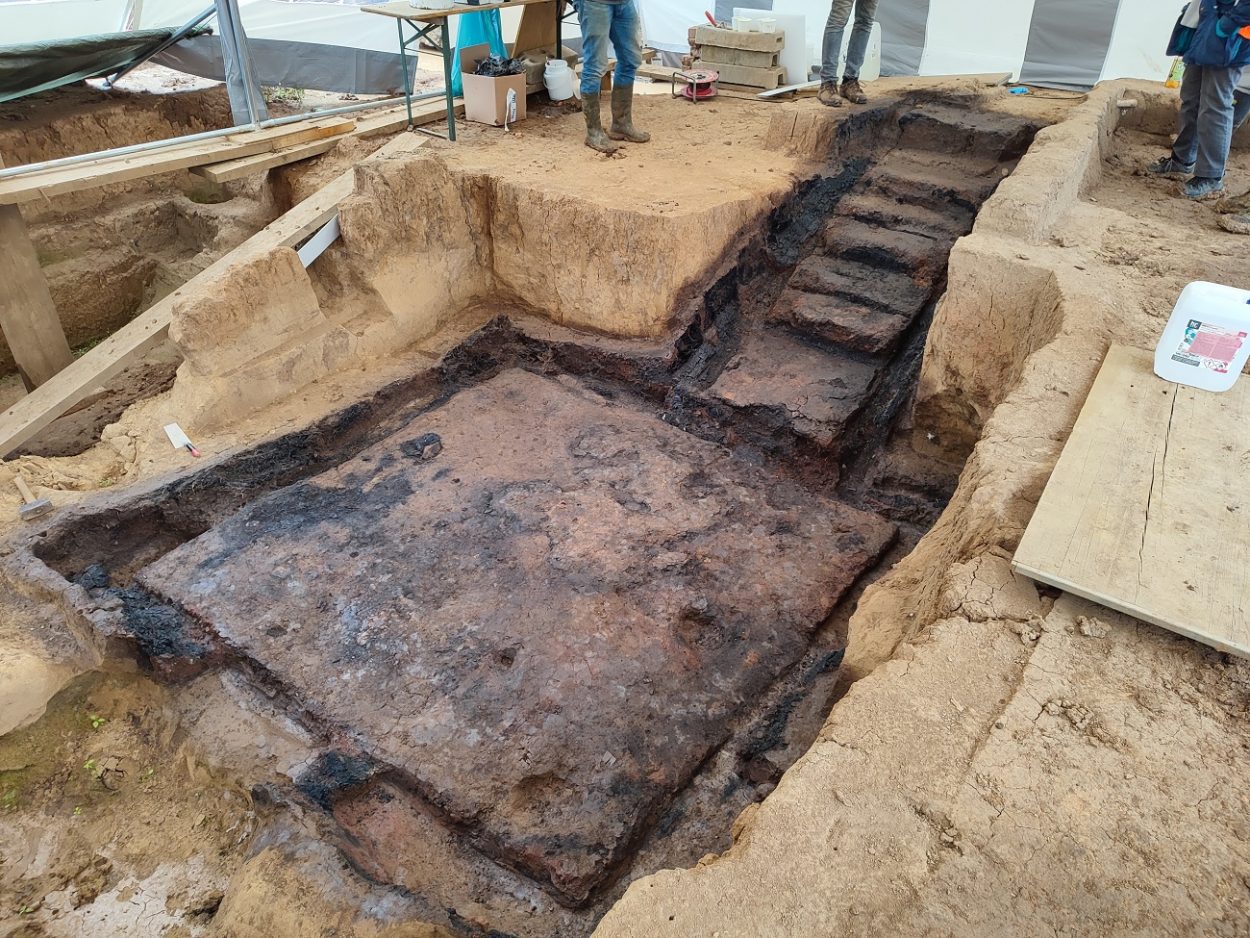Archaeologists from the Frankfurt Archaeological Museum have uncovered a well-preserved wooden celler in Frankfurt, Germany.
During the Roman period, Frankfurt’s modern districts of Heddernheim and Praunheim once constituted the Roman town of Nida.
In AD 110, Nida was the largest town on the Limes and rose to prominence as the capital of the Civitas Taunensium.
The town had a population of around 10,000 inhabitants, however, by AD 259 the population went into decline due to the Alemanni’s conquest of the Agri Decumates region.
A recent excavation conducted by archaeologists from the Frankfurt Archaeological Museum has led to the discovery of a Roman residential house, situated on the southern side of the Roman town’s two main streets (platea praetoria).
Within the dwelling are the remains of a well-preserved wooden cellar with steps leading down a staircase. Throughout the cellar are the remains of charred beams, charcoal, and fire debris, indicating that house was destroyed by fire during antiquity.
The heat of the fire reached such an intensity, that tools were left abandoned on the cellar stairs along with a glass jar that was found partially melted.
Archaeologists also found ceramic and glass vessels, and several objects made from metal.

Speaking to HeritageDaily, a spokesperson from the Frankfurt Archaeological Museum clarified that the team will analyse the archaeological materials to ascertain the precise dates of the building’s construction and destruction. Furthermore, by employing meticulous extraction techniques using synthetic resins, silicon rubber, and gypsum laminates, the team successfully transported the cellar intact for further preservation.
According to a press statement issued by the Frankfurt Archaeological Museum: “The cellar is not the first wooden cellar with fire debris identified in Roman Nida. Similar finds were discovered during excavations in the ancient city numerous times over the past 100 years; yet were less well preserved and not examined as extensively with modern excavation method“.
Header Image Credit : Frankfurt Archaeological Museum
Sources : Frankfurt Archaeological Museum – Salvage of a Roman wooden cellar in Frankfurt am Main





